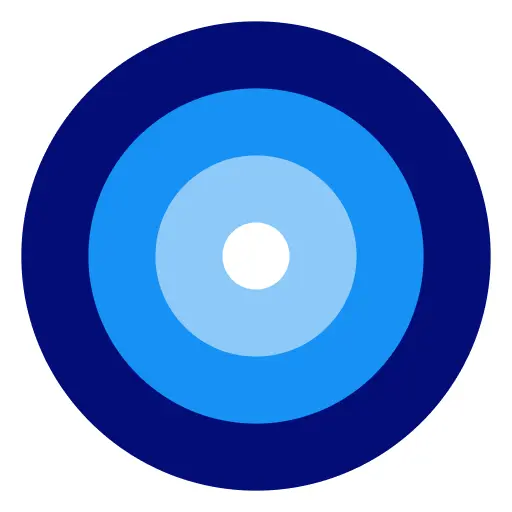ADVERTISEMENT
In today’s digital age, smartphone apps have become essential tools for organizing, entertaining, and assisting us throughout our day. Among the many apps available, the Google App stands as one of the most widely used for its powerful search capabilities, personalized recommendations, and smart assistant features. However, it faces strong competition from other tech giants, including Apple, Microsoft, and Amazon. In this article, we’ll conduct a detailed comparison of the Google App against its main competitors, focusing on features, user experience, and performance.
The Google App is far more than just a search engine. It is an all-encompassing digital assistant that integrates various Google services, such as Google Assistant, Google Lens, Google Calendar, and Google Keep, providing users with a comprehensive experience. Here are some of the standout features that make it a top choice:
Search Functionality: As expected, the Google App’s search engine is its primary feature. The app provides fast, relevant, and often personalized search results, whether you’re looking for information, directions, or shopping recommendations.
Google Assistant: A key component of the Google App, Google Assistant helps with hands-free tasks, reminders, navigation, and more. The app integrates voice commands seamlessly, enabling users to ask questions, set alarms, or control other smart devices.
Discover Feed: The app's Discover feature presents a personalized news feed tailored to the user’s interests, offering articles, blog posts, videos, and recommendations based on browsing history.
Google Lens: This visual search tool allows users to identify objects, translate text, and find similar products, providing a more interactive way to gather information.
Apple’s default app, Apple Search, is the built-in search engine on all iOS devices. While it’s not as expansive as Google’s, Apple has been working to make it more competitive by integrating features such as Siri and Apple Maps. The main distinctions between the Google App and Apple’s search functionalities include:
Search Functionality: Apple’s search is designed to offer a simple and clean interface, delivering results directly from Apple’s own ecosystem (Apple Maps, News, Safari, etc.). However, Google’s search results are more comprehensive, drawing on a broader range of sources, including third-party apps and web content.
Siri Integration: Apple’s voice assistant, Siri, is more tightly integrated with the iPhone’s operating system and its apps, but it’s still less versatile than Google Assistant in terms of third-party support and natural language processing. For example, Siri can handle basic tasks like sending messages or setting reminders, but it doesn’t match Google Assistant’s ability to provide detailed answers to complex queries.
Privacy: Apple emphasizes user privacy in its ecosystem, using encryption to protect user data and minimizing the amount of personal data stored. This is a key selling point for Apple users concerned about privacy. In comparison, Google has faced more scrutiny regarding data collection and user tracking.
Microsoft's Bing, while not as popular as Google, provides an alternative search engine with its own features. Paired with Cortana, Microsoft’s voice assistant, the company competes in the same space as Google. Let’s compare their offerings:
Search Functionality: Bing is known for its clean interface and visually engaging search results, especially in the image search category. However, it lags behind Google when it comes to the depth and accuracy of search results. Google uses a more refined algorithm that delivers quicker and more relevant search results.
Cortana Integration: Microsoft’s voice assistant, Cortana, once a prominent feature on Windows devices, has now been scaled back, focusing more on enterprise solutions. This limits its direct competition with Google Assistant, which is more integrated into a wide range of devices, including smartphones, smart speakers, and home automation systems.
Productivity Features: Microsoft’s Office suite and OneDrive cloud storage are major selling points for its ecosystem. While Google also offers cloud services like Google Drive, Microsoft’s integration with its apps, such as Word, Excel, and Outlook, can provide a more robust work environment for users who prioritize productivity.
Amazon’s Alexa has gained significant traction in the smart home device market, serving as a direct competitor to Google Assistant. The Amazon App, which helps users shop, track orders, and browse products, also competes in the digital assistant and search space. Here’s how Amazon compares to Google:
Search Functionality: The Google App excels at general search, providing comprehensive results from a variety of sources. Amazon’s app, on the other hand, is optimized for shopping, product searches, and Amazon-specific queries. While Amazon’s search results are highly relevant within the Amazon ecosystem, Google’s ability to pull in diverse sources gives it an edge for broader queries.
Alexa Integration: Alexa, Amazon’s voice assistant, works seamlessly with Amazon Echo devices, offering smart home controls, music streaming, and online shopping. However, Google Assistant can be used across a wider range of devices and integrates better with non-Amazon services, making it more versatile.
E-commerce Focus: Amazon’s app is designed with one main goal—shopping. While Google provides online shopping links, Amazon’s app offers a more streamlined experience for making purchases, tracking orders, and interacting with customers.
When it comes to user experience, each app has its strengths and weaknesses. The Google App is recognized for its fast, accurate search results and smooth integration with other Google services, such as Gmail, Google Photos, and Google Maps. However, some users prefer Apple’s simplicity and privacy-focused ecosystem. Amazon’s app shines for shopping and smart home integration, but it lacks the broad search capabilities of Google.
Design and Interface: The Google App boasts a clean, minimalistic interface that focuses on efficiency. Its voice search and assistant features are easy to access, and the Discover feed makes it simple to stay updated on your interests. Apple’s app, on the other hand, focuses on smooth integration with iOS features, such as Siri and Apple Maps, but some users find it less customizable. Microsoft and Amazon apps are also well-designed but are more niche-focused, serving particular user needs like productivity or shopping.
In the battle between the Google App and its competitors, Google holds a clear advantage in terms of search functionality, versatility, and integration with a wide range of services. Apple’s focus on privacy and its ecosystem of apps provides a compelling option for users invested in the Apple ecosystem, while Microsoft and Amazon offer strong alternatives for users focused on productivity or shopping. Ultimately, the best app depends on your needs and priorities, whether it’s privacy, functionality, or ecosystem integration. As technology continues to evolve, it will be interesting to see how these apps adapt to meet changing user expectations and technological advancements.


















